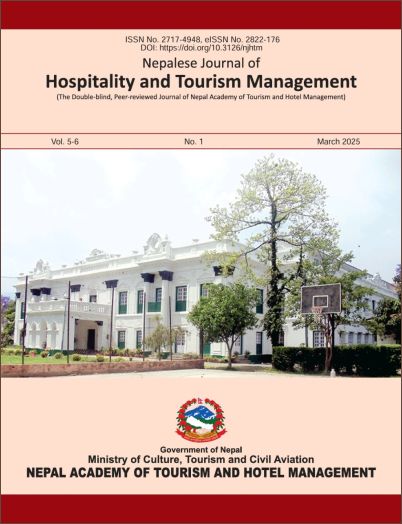Evaluating Consumer Behaviour Towards Traditional Newari Food in the Kathmandu Valley
DOI:
https://doi.org/10.3126/njhtm.v6i1.76495Keywords:
Food choice, heritage tourism, Newa/Newari cuisine, Theory of Planned BehaviourAbstract
This study evaluates tourists' food choice behaviour towards traditional Newa (Newari) cuisine in Kathmandu Valley by employing an extended Theory of Planned Behaviour (TPB) framework. This study integrates additional dimensions (Curiosity, Perceived Usefulness, Education, and Aesthetic) alongside core TPB constructs of Attitude, Subjective Norms, and Perceived Behavioural Control to explore the factors influencing food choices. A quantitative approach was adopted, with data collected from 182 domestic and international tourists using a structured Likert-scale questionnaire. Results from descriptive and correlation analyses highlight the significant roles of attitudes, experiential dimensions, and behavioural control in shaping tourists' intentions and actual behaviour towards consuming Newa (Newari) cuisine. This study bridges existing research gaps and provides actionable insights for promoting Newa (Newari) cuisine as a cultural and epicurean asset in Nepal’s heritage tourism. Strategically integrating authentic culinary experiences into the broader tourism framework can catalyse sustainable development, enhancing cultural appreciation and encouraging long-term growth in the tourism sector.





